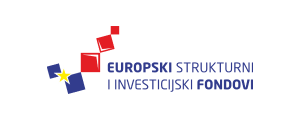General Information
Project title: Development of the Croatian Resource Centre for Rare Diseases
Project coordinator: Rare Diseases Croatia
Project partner: Društvo oboljelih od bulozne epidermolize
Duration: : July 1, 2020 – July 1, 2022
Total Project Value: 1.306.323,82 kuna
Union through the European Social Fund in the amount of HRK 1,306,323.82.
Project Summary
The purpose of the project is to improve the quality of life of children with rare diseases and their families by developing and enhancing a holistic approach to care and increasing the availability of social services.
Between July 1, 2020 and July 1, 2022, the project included the implementation of the following activities:
- Establishment of an online educational platform for rare diseases
- Organization and delivery of four regional workshops on rare diseases for professionals
- Delivery of 16 online training sessions for professionals working with people living with rare diseases
- Training for staff in 34 primary and secondary schools
- Development of the online “Rare Library” with information on more than 100 rare diagnoses
- Organization and delivery of four educational–rehabilitation camps for children with rare diseases
- Establishment of a theatre drama group for children with rare diseases
- Implementation of 16 online courses for parents
- Establishment of an occupational therapy counselling service
- Production of six short documentary films on the social aspects of living with rare diseases
- Organization and implementation of a media campaign on rare diseases
- Workshops for parents of children with rare diseases
- Promotion and visibility activities
- Project management and administration
Objectives and Expected Results
Phase 1
Objective:
Improve networking and strengthen the capacities of professionals in the fields of social care and education who work with children affected by rare diseases
Results / Indicators:
- 2 social service providers implementing the project
- 600 professionals participated in training
- 50 professionals trained in the field of social services
- 34 primary and secondary schools where training sessions were held
Phase 2
Objective:
Enhance the social inclusion of children living with rare diseases and empower their parents to provide developmental and educational support
Results / Indicators:
- 120 young people (up to 25 years) included
- 250 parents participated in educational programmes
Phase 3
Objective:
Raise public awareness about the challenges of living with rare diseases, promote acceptance of diversity, and foster a culture of tolerance
Results / Indicators:
- 20 awareness-raising activities / rare disease campaigns implemented
